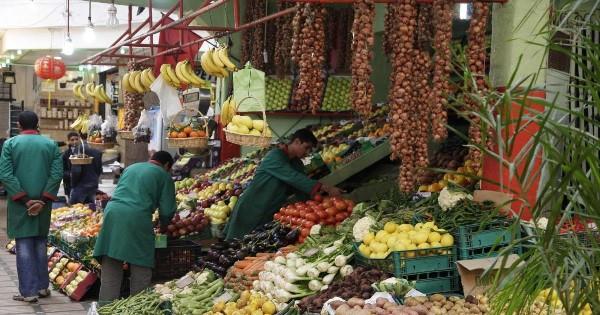
403
Sorry!!
Error! We're sorry, but the page you were looking for doesn't exist.
New Study Urges Morocco To Diversify Economy to Spur Job Creation
(MENAFN- Morocco World News) Rabat - Morocco has failed to benefit from its youth. The booming demographic evolution of the country has barely made any impact on wealth and job creation in Morocco, according to two studies conducted by the High Commission for Planning (HCP). For the HCP, the increase of unemployment, which reached 10.3 percent this year, pulls down the growth of Moroccans' living standards, which barely exceeded 3.2 percent between 2001 and 2015. 'Between 2001 and 2015, Morocco's average growth rate stood at 4.3 percent. With a population growth of 1.1 percent, the standard of living rose of 3.2 percent. It is not much,' Ayach Khellaf, Director of Forecasting at the HCP, pointed out as he presented on Wednesday studies on the sources of wealth creation in Morocco and its distribution. The factors that contribute to increasing wealth at the country level can be addressed in many ways. According to the HCP, the increase in wealth requires an important population growth rate, a healthy employment rate, and efficient productivity gains. Measured by GDP growth, 'this is how wealth is made,' stressed Khellaf. Unemployment on the rise Per capita GDP growth slowed down between the 2001/2008 (pre-crisis) and 2008-2015 periods, falling from 3.6 percent per year to 2.7 percent due to the decline in the employment rate in some sectors. In agriculture, forestry and fishing, the employment rate fell from 20.1 percent in 2001 to 16.7 percent in 2015. At the industry level, this rate fell from 5.8 to 4.8 percent. On the other hand, the services and construction sectors were the exception of this downward trend, recording employment rate improvements of 16.2 and 3 percent in 2001 to 17.3 and 4 percent in 2015. Based on these figures, the HCP stresses the need to put job creation at the heart of the government agenda, particularly in sectors where employment rates are continuously falling, thus negatively affecting the standard of living of the population. During the study period, decreases in employment rates in the agriculture, forestry and fishing sector and in industry negatively affected the standard of living of the population with -20 and -5.2 percent. It is the improvement in labor productivity that has made it possible to absorb the increase in unemployment. The agricultural sector contributed with 25 percent to the improvement of GDP per capita and industry with 20.4 percent, while the rest of the activity sectors (construction and services) contributed with 15.8 percent. Paradoxically, the increase in productivity in agriculture and industry during 2008/2015 was favored by job losses in these sectors. Money don't grow on trees In small words, Morocco must diversify its economy to increase productivity, promote employment and thus improve the standard of living of the population, stresses the HCP. With an economy that is dominated by the agriculture sector, the country needs to depend on something other than rain. For the HCP, this diversification must encompass non-agricultural sectors, as well as agriculture and services. According to the same study, the job market needs to be more flexible. However, this goal dependens on the implementation of structural reforms. The results of HCP's studies might pose a challenge to the government, which has launched a consultation process to reconsider Morocco's development model. Morocco has not been able to take advantage of the demographic dividend. Disparities do not only exist between sectors, but also between rural and urban areas. In sectors with high productivity, the employment rate remains low (agriculture, industry) while in those with low productivity such as services and construction, the employment rate is high. The recommendations of the High Commission's experts are based on the study of the structural determinants of per capita GDP trends, in order to determine the contribution of these factors to the growth of per capita value added, particularly the demographic, the employment, and the labor productivity effects. "

Legal Disclaimer:
MENAFN provides the
information “as is” without warranty of any kind. We do not accept
any responsibility or liability for the accuracy, content, images,
videos, licenses, completeness, legality, or reliability of the information
contained in this article. If you have any complaints or copyright
issues related to this article, kindly contact the provider above.


















Comments
No comment